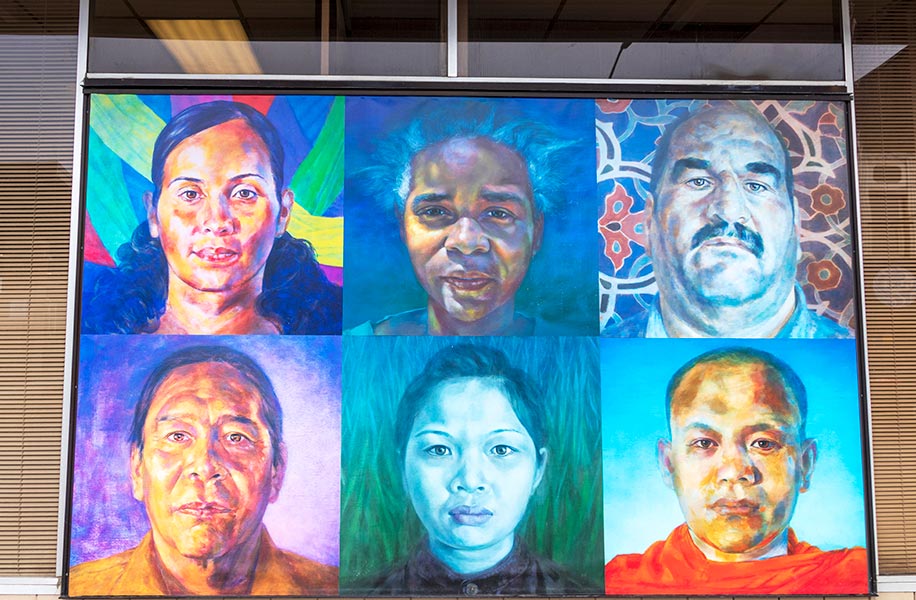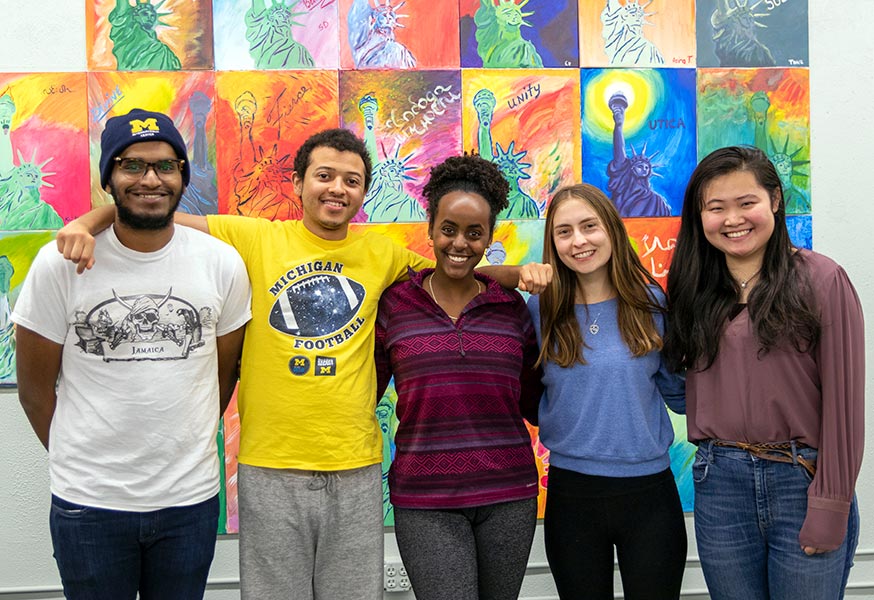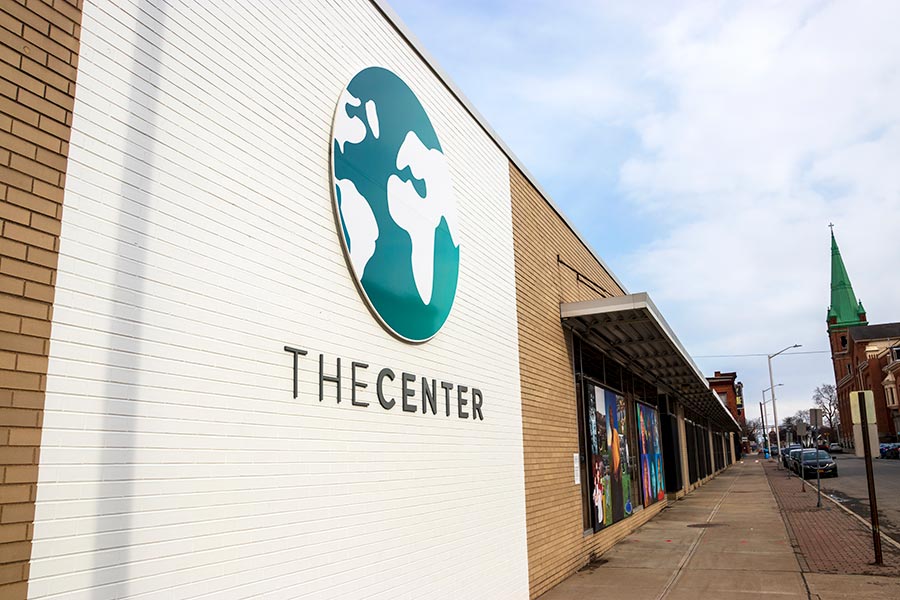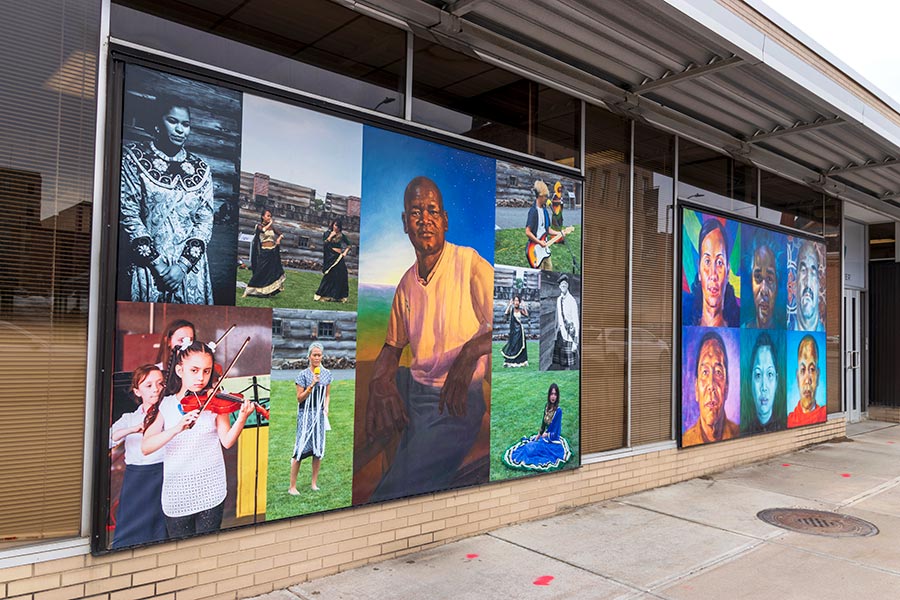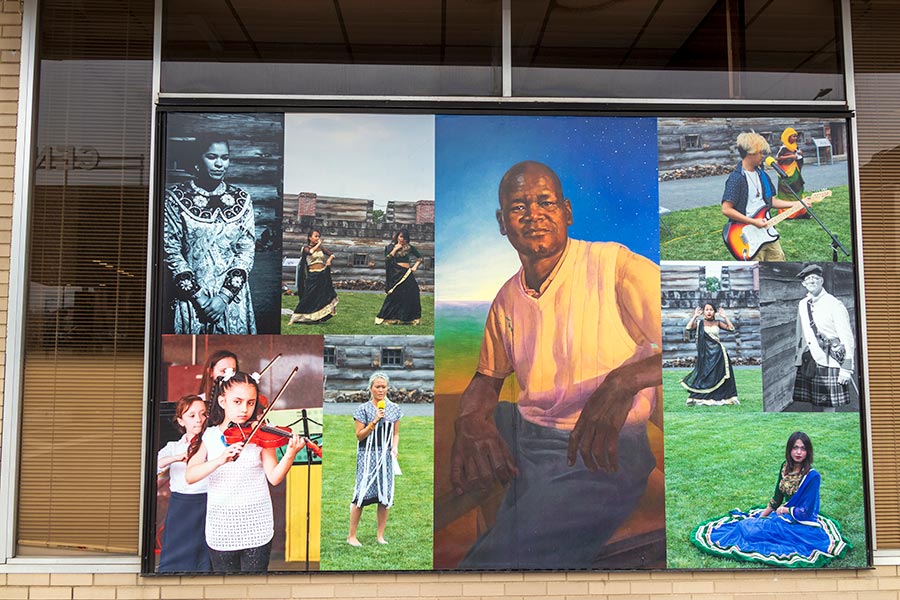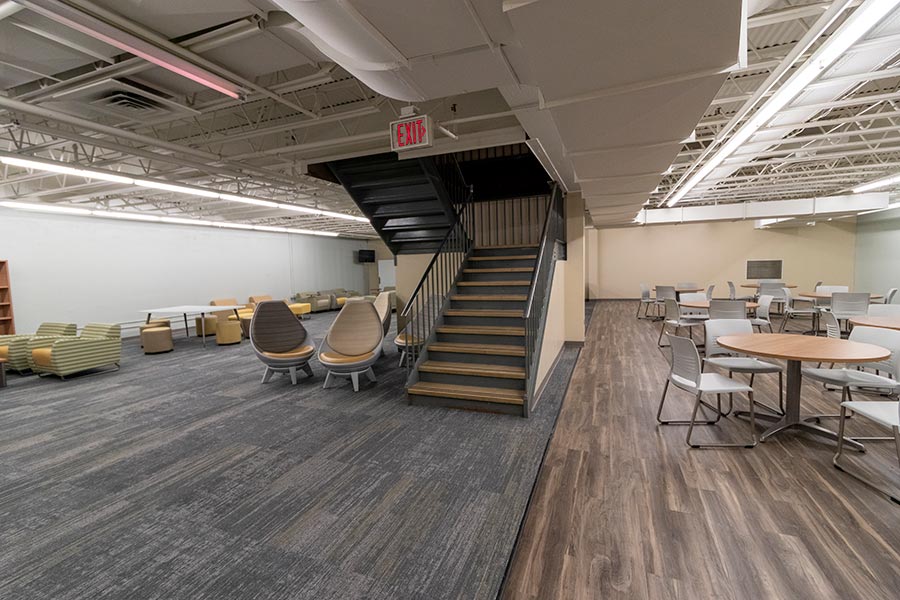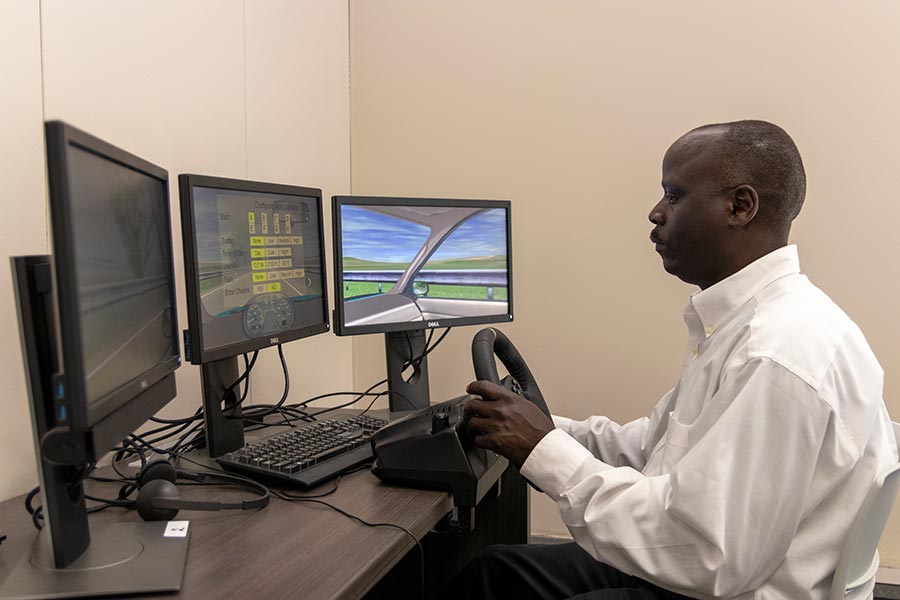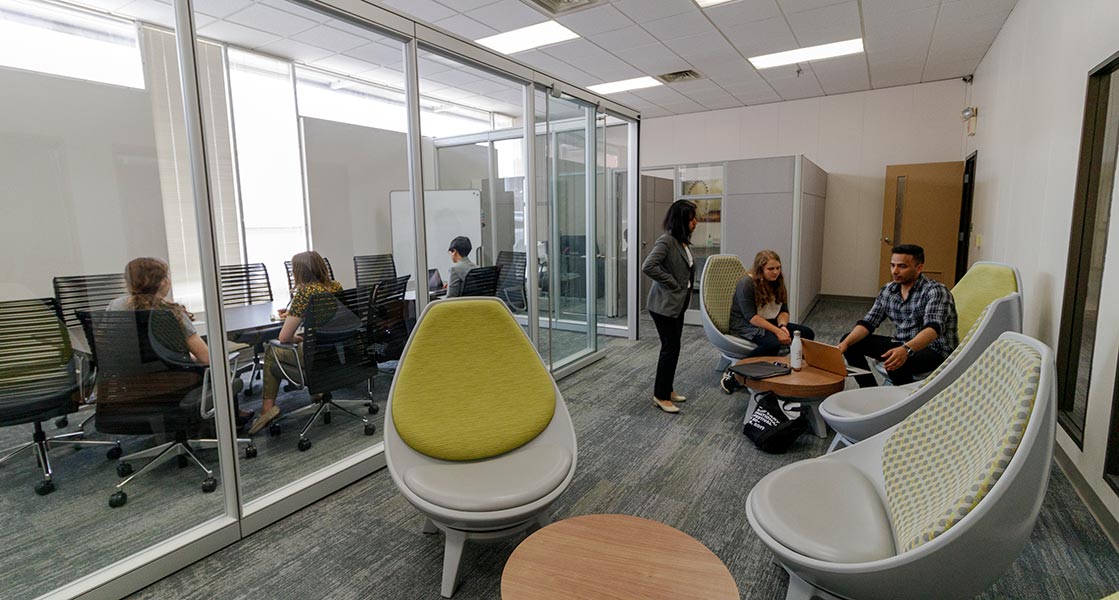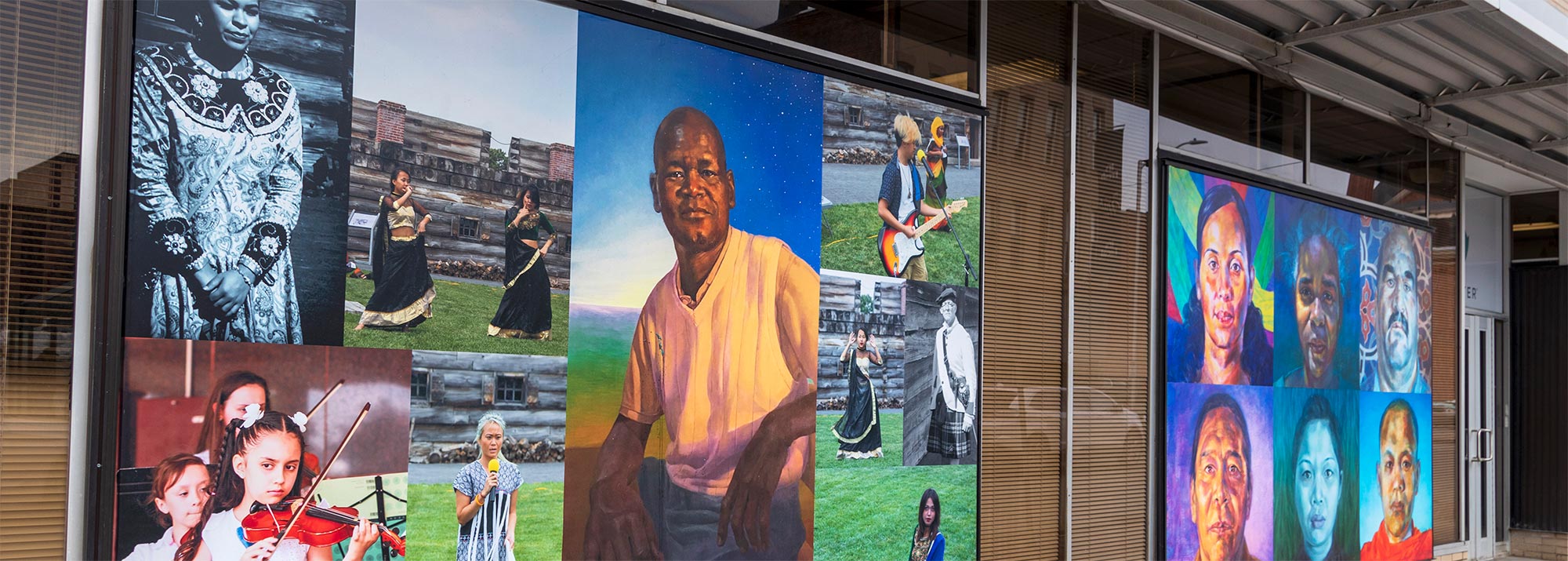
Welcoming All With Open Arms
The Center, formerly known as the Mohawk Valley Resource Center for Refugees, has propelled its mission forward and has undergone dramatic changes in the last few years.
The Center, formerly known as the Mohawk Valley Resource Center for Refugees, has propelled its mission forward and has undergone dramatic changes in the last few years.
Discussions about the organization's name change began more than a decade ago. With a lot of strategic planning, the nonprofit's staff and board came to a realization.
"We are a refugee center—that will always be the heart of what we do," said Shelly Callahan, executive director of The Center. "But we are also much, much more, so we wanted a name that allowed us to capture all of the things that we do."
In September 2019, with the help of $1.75 million from Empire State Development, The Center moved to its new location on Bleecker Street in Utica.
The welcome center area allows the organization to be more open-facing for the entire community—engaging partners in new ways. The new vibrant building has allowed The Center to continue to serve refugees and welcome Utica's newest residents, while expanding to offer programming that may help other groups as well, including services such as adult education and job placement.
"The new space has allowed us to become the idea of welcome and to enact that idea," said Callahan. "The welcome center allows us to face a larger portion of the community, not just refugees, not just immigrants, but everybody, and it also allows us to do the work of welcome differently and more intentionally. It's all a part of fulfilling our mission."
The challenges that refugees face in Utica today are the same as they have been for decades—language and cultural barriers, accessing safe and affordable housing, transportation, getting a job, understanding how to advance professionally, establishing a family, and more. Those are the challenges, but many opportunities exist here—and The Center is the central hub for those seeking to access them.
The Center offers many resources in addition to refugee resettlement, including immigration and citizenship assistance, a traffic safety program, employment department, the office for new American's, written and spoken language services, a variety of case management services and even opportunities to lease space in its new building.
"The refugee resettlement program in Utica is something that this community should be enormously proud of," stated Callahan. "To be designated "The Town That Loves Refugees" by the UNHCR, the office of the United Nations High Commissioner for Refugees, is a tremendous honor. To me—that speaks to the kind of people we are as Uticans. It speaks to the heart of this community, that this is a good-hearted and generous place."
For the most part, it is true that we've welcomed diversity and practiced tolerance as a community. Much of the vibrancy and economic revitalization happening throughout the region and in our neighborhoods is due to the influx of hardworking immigrants that have come to call the Mohawk Valley home. In a 2014 New York Times article, "A New Life For Refugees, And The City They Adopted," it was estimated that as many as one-fourth of Utica's population of 62,000 is made up of refugee families. An economic engine for the city, starting small businesses, buying and renovating houses, and bringing new life to the community.
There is a strong history of partnership between The Community Foundation and The Center. When new federal policies for refugee resettlement were established in 2016, The Community Foundation helped the organization leverage community support—agreeing to match contributions, up to $20,000. Throughout a six-week matching-grant campaign, individuals donated nearly $16,000, and corporate and foundation partners gifted another $22,000. The Community Foundation's $20,000 match brought the total raised to more than $60,000, helping The Center to continue providing vital resettlement services as it has for more than 35 years.
In late winter 2019, another major event threatened the stability of Utica's refugee populations, the entire community, the nation, and spread throughout the world—the COVID-19 pandemic.
Many refugees are on the front lines, putting them at higher risk because of language barriers and lifestyles. Unfortunately, low-income and immigrant communities were faced with an enormous threat.
The Center was among the first approved grants made through the Mohawk Valley COVID-19 Response Fund, a community-wide fund created through a partnership between The Community Foundation and the United Way of the Mohawk Valley. Funding for The Center supported COVID-19 outreach to refugees—an essential service amidst the confusion and uncertainty swirling about the global health crisis. Through an awareness campaign with multilingual billboards, social media posts, web updates and direct outreach in 25 languages, The Center has taken the challenges presented by COVID-19 in stride.
In July, The Center worked with the New York Department of Health in conjunction with the Oneida County Health Department, Chobani, and the City of Utica to offer all community members the chance to get tested at no cost. The free testing clinic site at Tabernacle Baptist Church in Utica administered more than 500 tests. Interpreters were there to assist. Through awareness efforts in partnership with Chobani, The Center is continuing to encourage people to get tested, including the refugee and immigrant populations.
When COVID-19 upended the organization’s traditional World Refugee Day celebration in Hanna Park, The Center took an innovative approach to make it happen. Adhering to social distancing guidelines, they created a virtual walk/run called A Walk in Their Words, allowing participants to listen to refugee and immigrant audio stories during the event and hear the personal experiences and journeys of individuals from around the world. The goal was to raise awareness, build community and raise dollars to support agencies across New York state that serve refugees and immigrants and have experienced recent funding cuts. The event was well-supported with many participants and sponsors, including the band Moe. Visual artwork aided in the celebration, created by Patrick Fiore, an artist from upstate New York whose work is influenced by human rights issues and assumptions of equality.
Tek, a father of three from Bhutan, who escaped persecution and spent 18 years in a refugee camp before being accepted into the United States, shared his story and this message through "A Walk In Their Words."
"I don't want you to take me as a person from a different universe, take me from your heart. I wanted to make my family thrive in the United States, just like you. So consider them, accept them, they are your brothers and sisters."
A message that's universal, regardless of where you're from, whether you make your home in this community, or afar, this moment in history connects us, reinforcing the bond between us all—our humanity. And it is our responsibility—all of ours, collectively, to do the best we can to meet this moment with grace and kindness.

